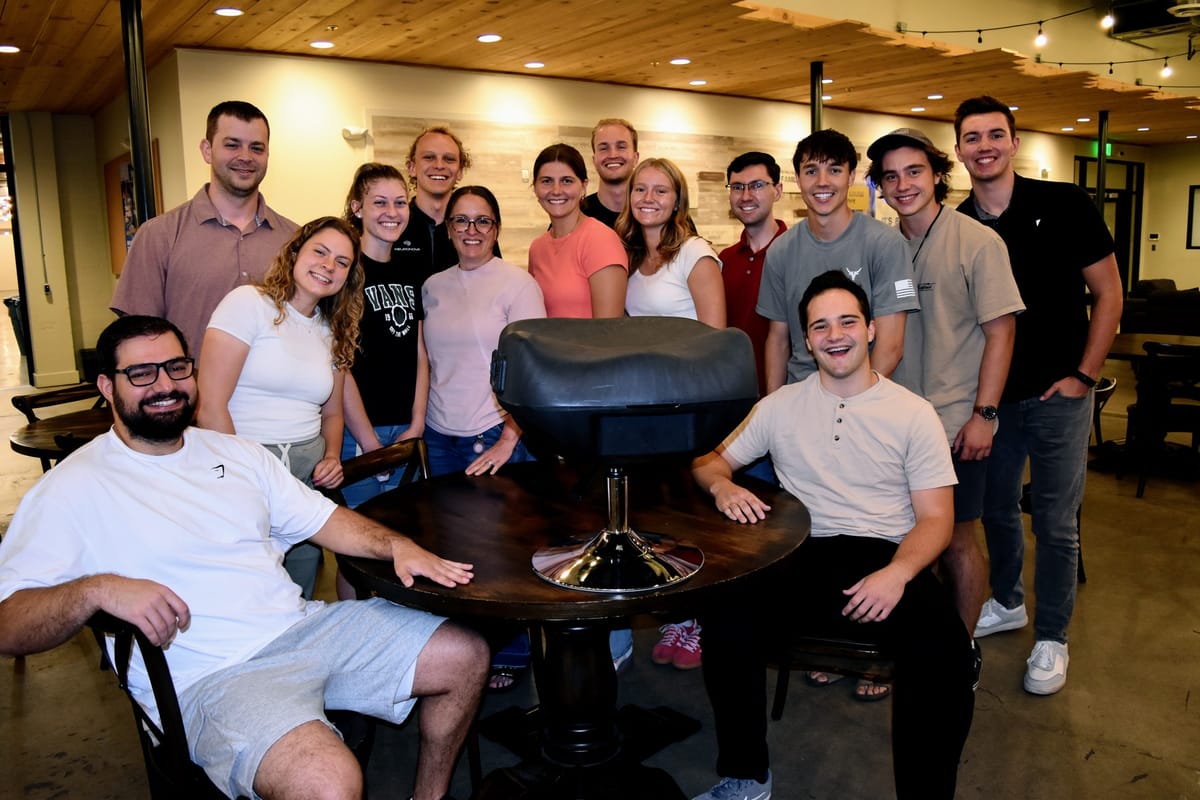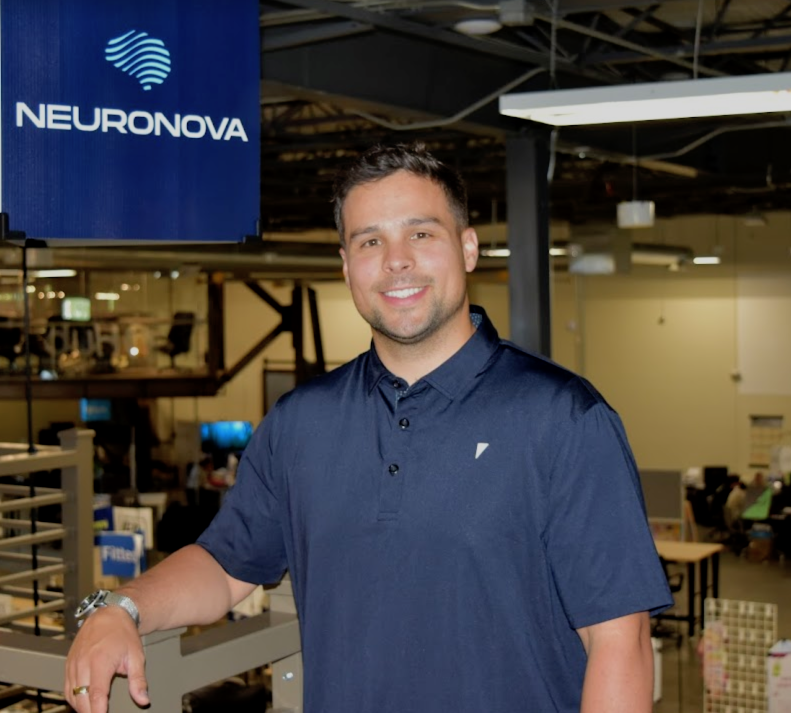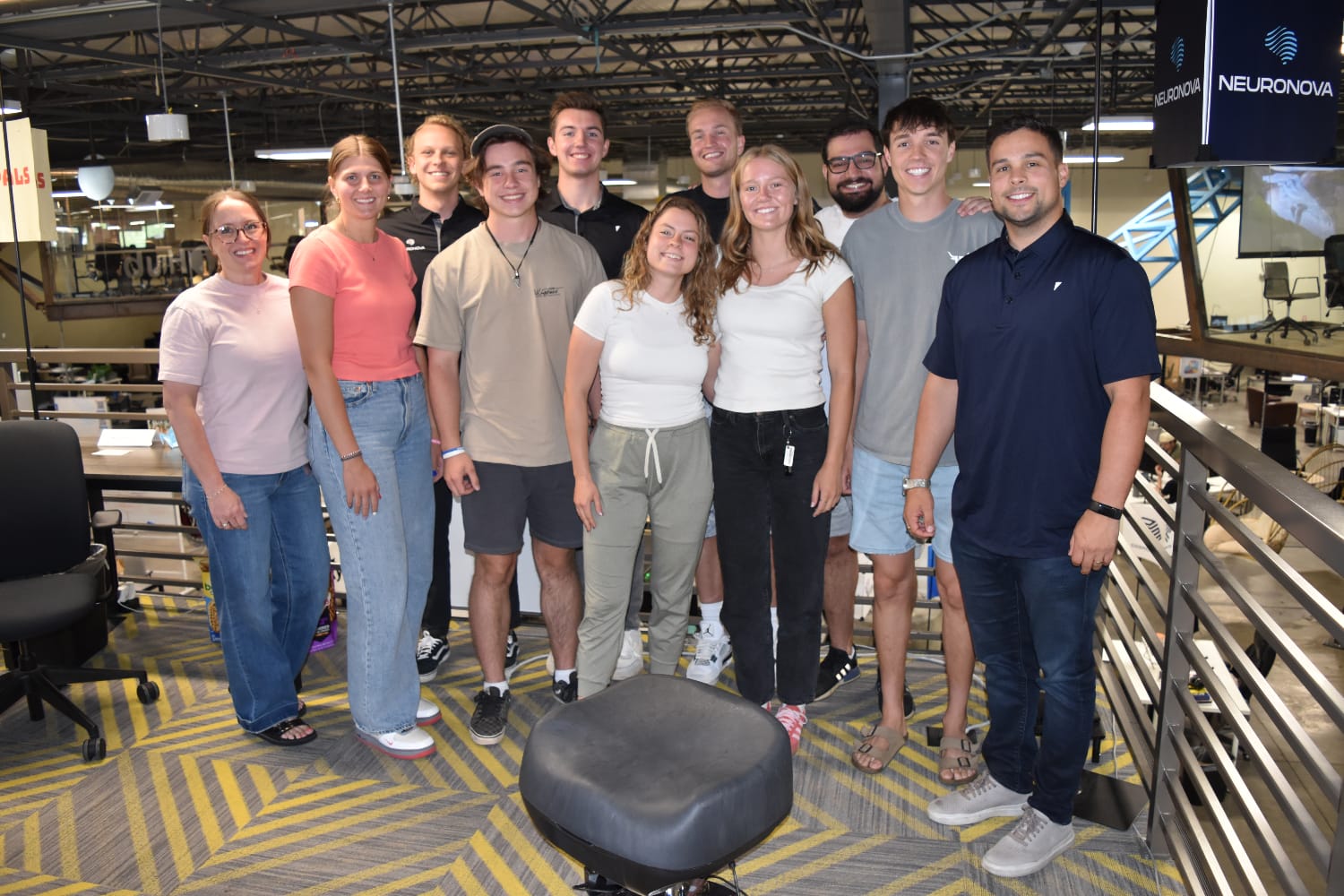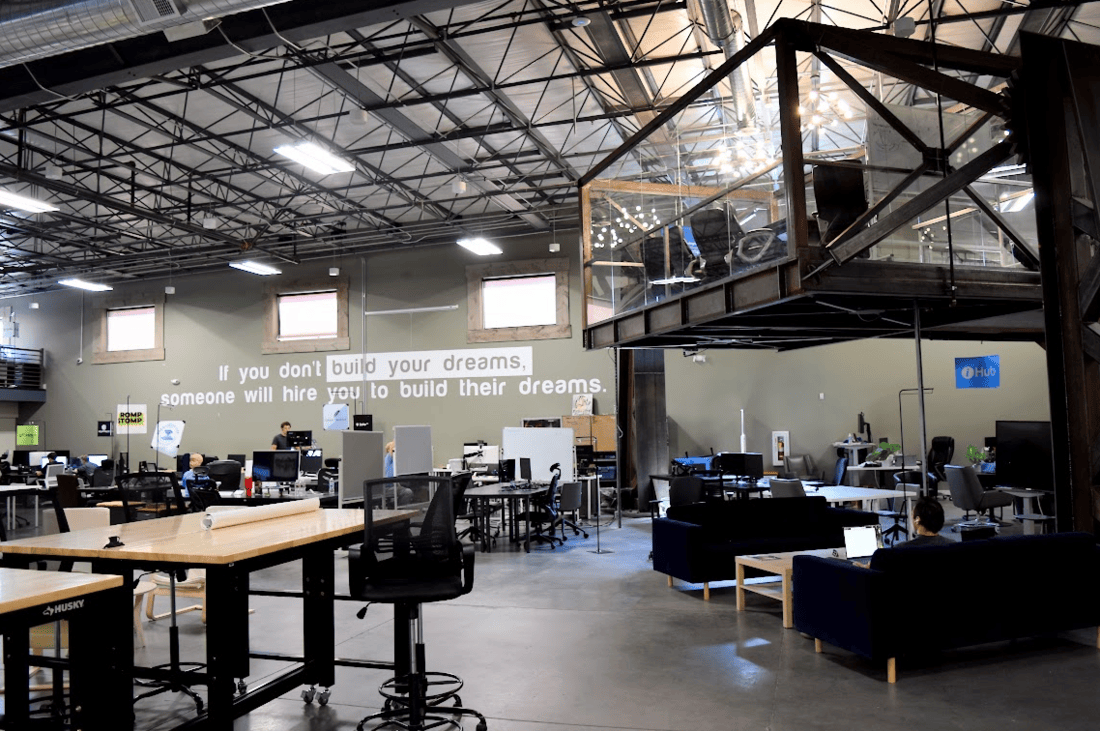

Provo, Utah - July 11, 2025
What began in a BYU neuroscience lab has blossomed into a wellness—and potentially medical—startup that's drawing attention across mental health, rehab, autism, and Parkinson’s communities. The secret? A simple-looking chair that vibrates. But Neuronova, led by serial entrepreneur Tom Wilkinson, asserts it can noninvasively boost dopamine and bring profound relief to anxiety, addiction, pain, and more.
From Tech Transfer to Venture Capital
Wilkinson, a Managing Partner at Ollin Ventures—a Provo-based pre-seed and seed-stage VC fund—has a long history of spinning BYU innovations into successful companies. He’s helmed and invested in tech startups for over a decade.

“At Ollin Ventures, we’ve seen it all—portfolio companies with rapid exits, and some that take years to mature. But we stand by founders every step of the way,” he recently posted.
Before Ollin, Wilkinson built a successful line of ASL-smart glasses for deaf students—selling to NASA, Microsoft, and numerous schools and universities—then stepped back to let expertise drive the mission. Now, he’s leveraging that entrepreneurial rigor into a field personal to him.
“I lost my older brother to a methadone overdose, and I've battled anxiety and OCD myself,” he reflects. “Pharmaceuticals helped me function—but never fixed me. I wanted something that addressed the root.”
Science by Vibration
Neuronova’s genesis lies in a BYU study: 80 Hz mechanical pulses to the spine of lab rats triggered a 200% dopamine spike and reduced GABA (gamma-aminobutyric acid). The team, now at 15 employees, then engineered a chair that emits a precise 80 Hz heterodyne wave up the human spine—feeling like a deep, therapeutic massage.
“We see dopamine production starting around the six or seven minute mark,” says Wilkinson. “So we built a 10‑minute protocol to give the body time to respond.”
Marketed today as a wellness chair, Neuronova is deployed in nearly 50 locations across Utah—rehab centers, med-spas, chiropractors, and pain clinics, offering 10‑session packages at $25–$60 each. The company uses the State-Trait Anxiety Inventory (STAI‑6) anxiety inventory to track outcomes alongside clinical trials.
A few standout stories from users:
- Chronic pain + anxiety: “Science is real and the chair works,” reported a user who lowered both pain and medication usage.
- Autism breakthrough: “I’ve never seen my son smile so much.”
- Social anxiety breakthrough: A mostly nonverbal son-in-law afflicted with autism opened up in a three-hour conversation post-treatment—far beyond any prior interaction.
"We know it's not a panacea," Tom says. "But if it can help people self-regulate in a safe, drug-free, noninvasive way? That’s a big deal."

Clinical Trials & Distribution Edge
Neuronova is running a $3 million Phase II NIH-funded trials across Florida, Tennessee, and Utah—building on a Phase I Utah study that showed a 60% reduction in withdrawal symptoms versus placebo. The Provo startup is lining up FDA approvals while gathering real-world data through partner clinics.
Wilkinson describes the chair’s manufacturing journey: over 10–20 prototypes, evolving from 3D-printed shells to injection-molded production (v1) and now preparing a v2 for partner rollout. Key components are locally produced in Sandy, UT, with other pieces sourced overseas.
“Our dream is for this to be as common as having a yoga mat—to reset, regulate, and feel better on your own terms,” he says.
Beyond the Chair
Wilkinson continues to advise and invest through Ollin Ventures—where he brings his deep experience in nurturing startups from tech-transfer origins into market-ready businesses. He’s passionate about mentoring, crediting iHub and his network for propelling his path: “Who you know takes you to much higher levels,” he’s said on LinkedIn.
Bottom line
Neuronova may look like a massage chair, but its under-the-surface tech and hard data hint at measurable brain-level effects. With a founder who knows how to take BYU-born ideas to customers (and capital), Neuronova appears to be one of Utah’s most intriguing biotech-leaning startups yet. Clinical validation is still pending—but the journey is unmistakably genuine, and deeply personal.
For more information visit, www.neuronovaco.com
Editor’s Note: During the interview process, this author participated in a standard ten-minute therapy session on the Neuronova chair. While any immediate effects are anecdotal and subjective, the experience did produce a notable sense of physical calm and heightened awareness. As with all emerging wellness technologies, individual responses will vary, and formal clinical validation remains essential.


